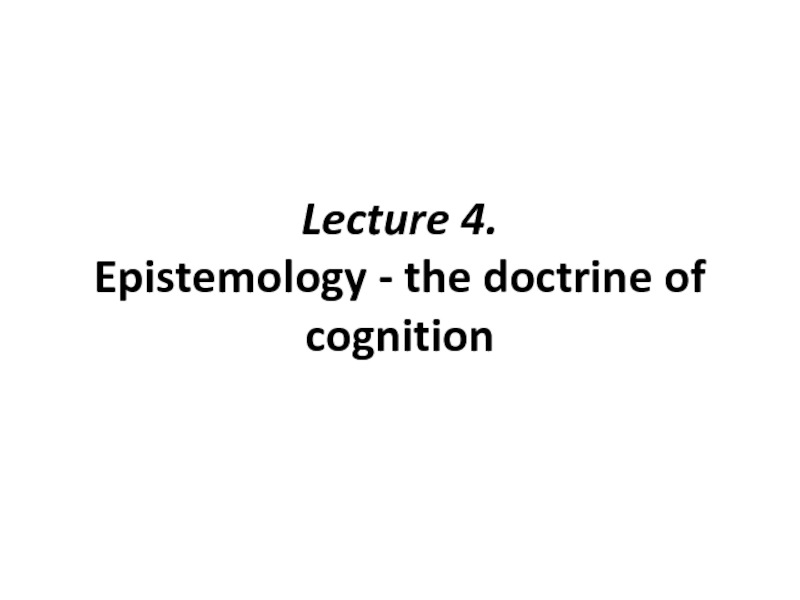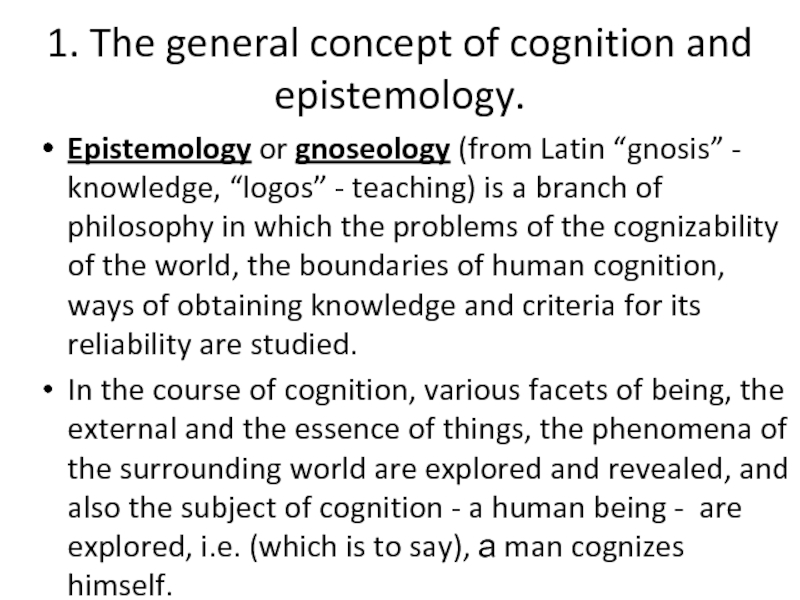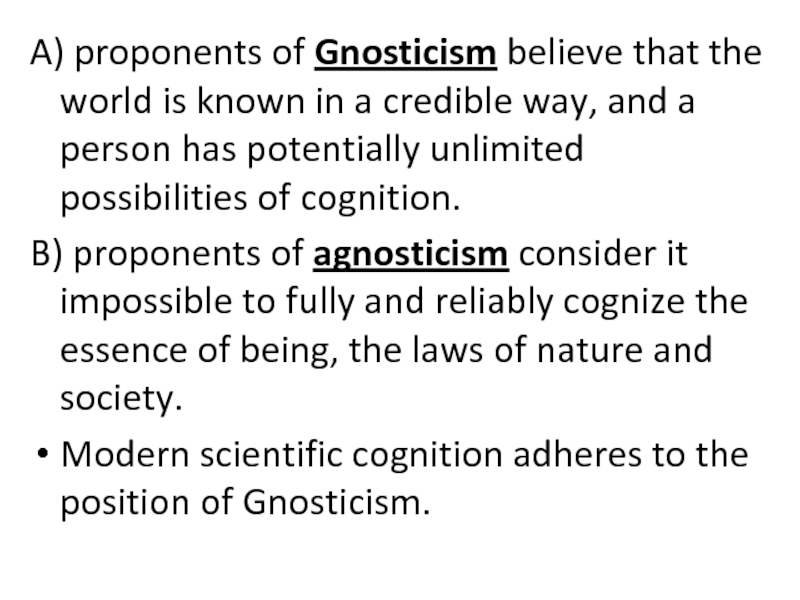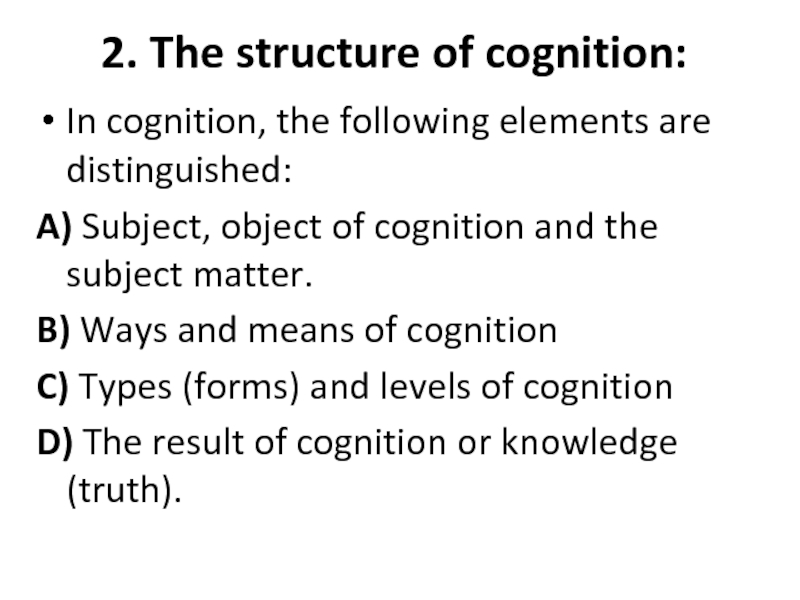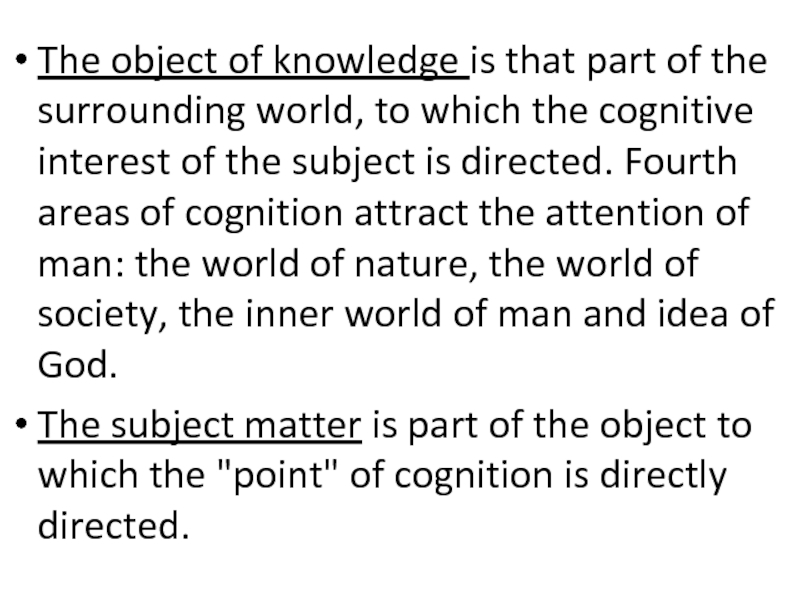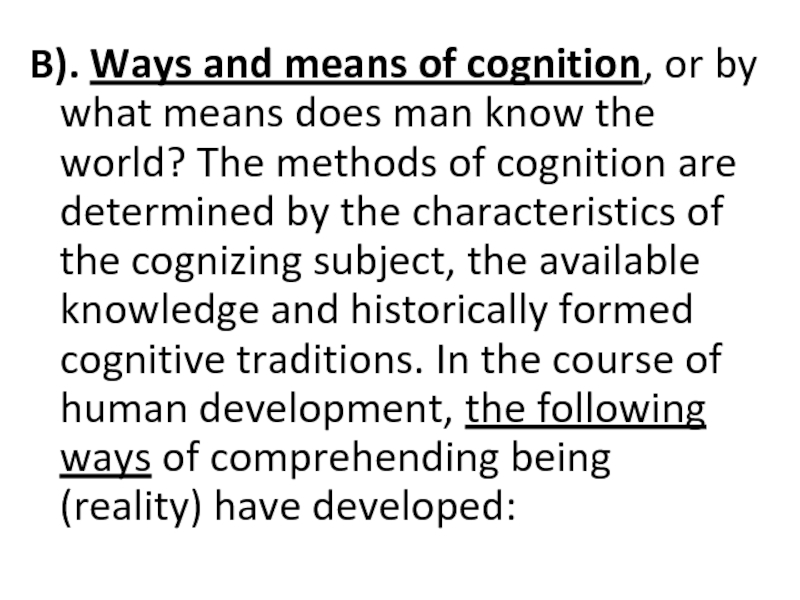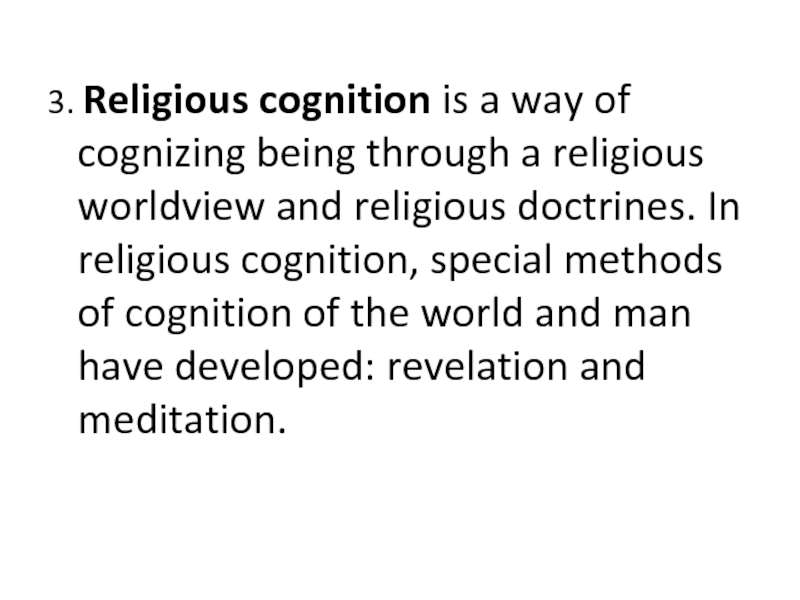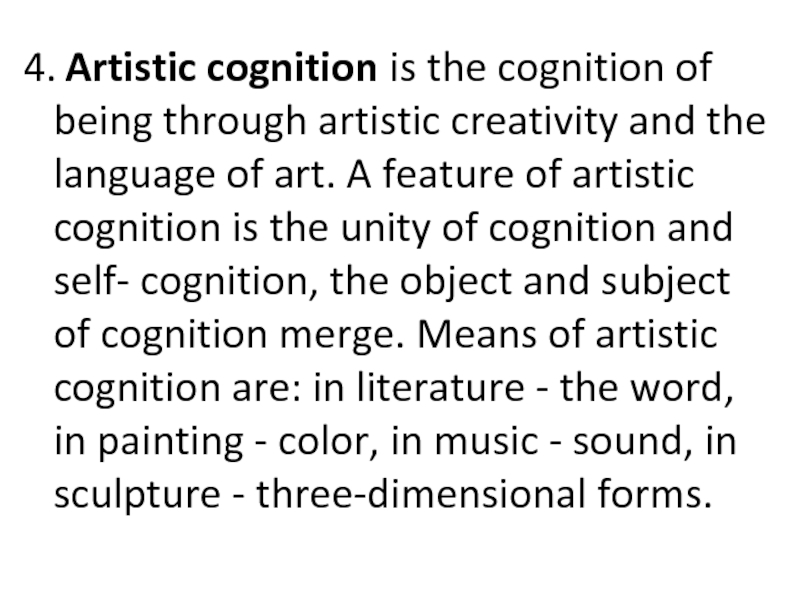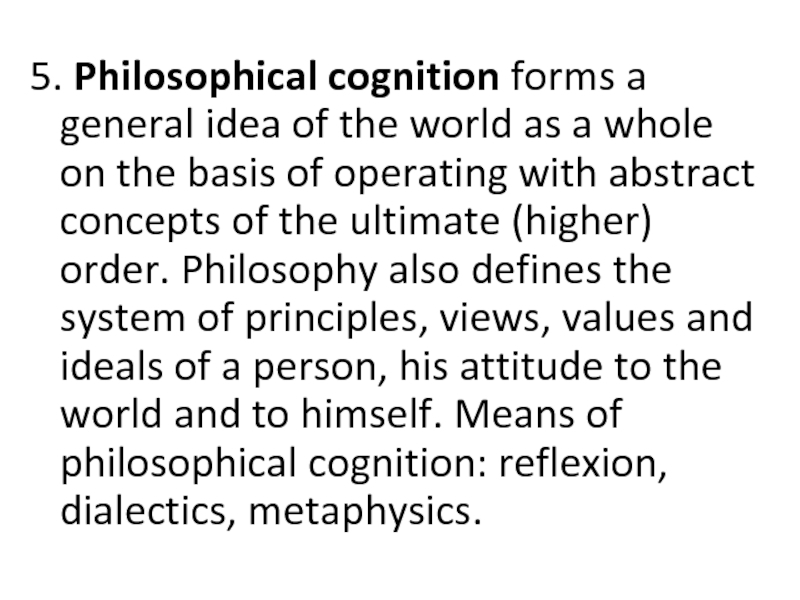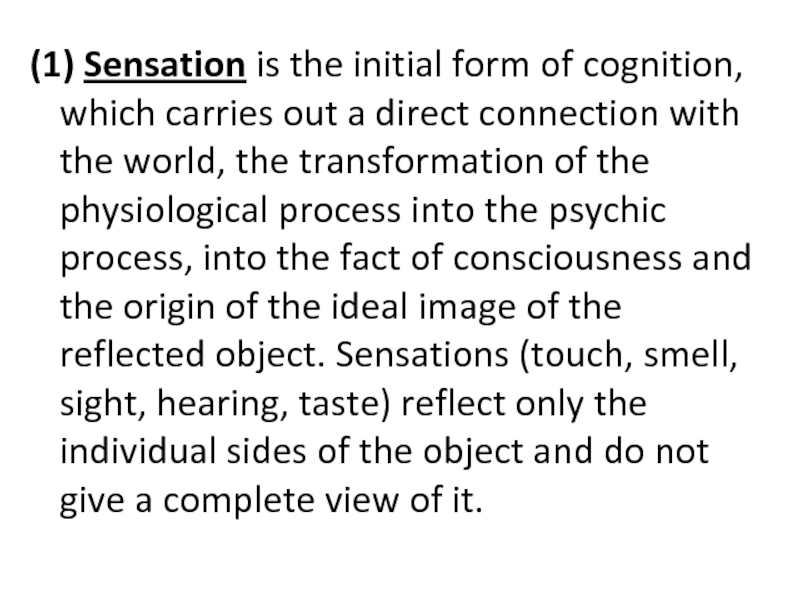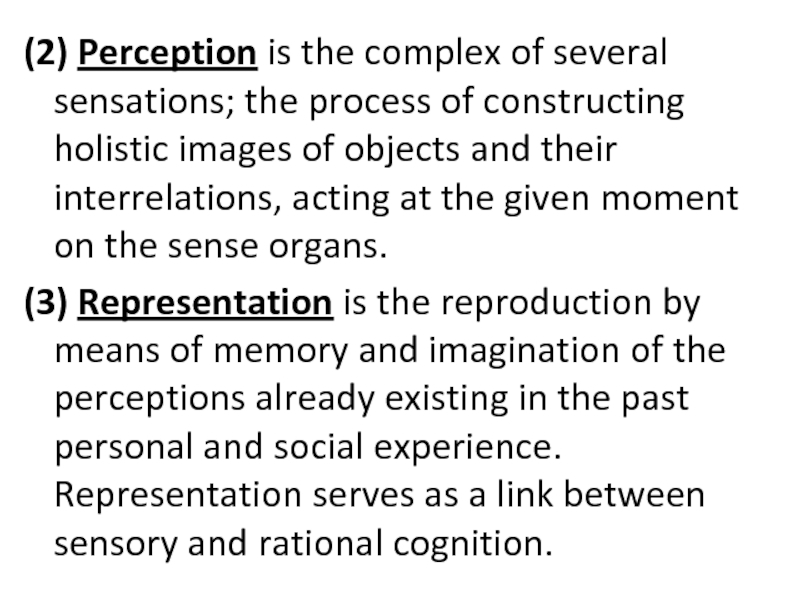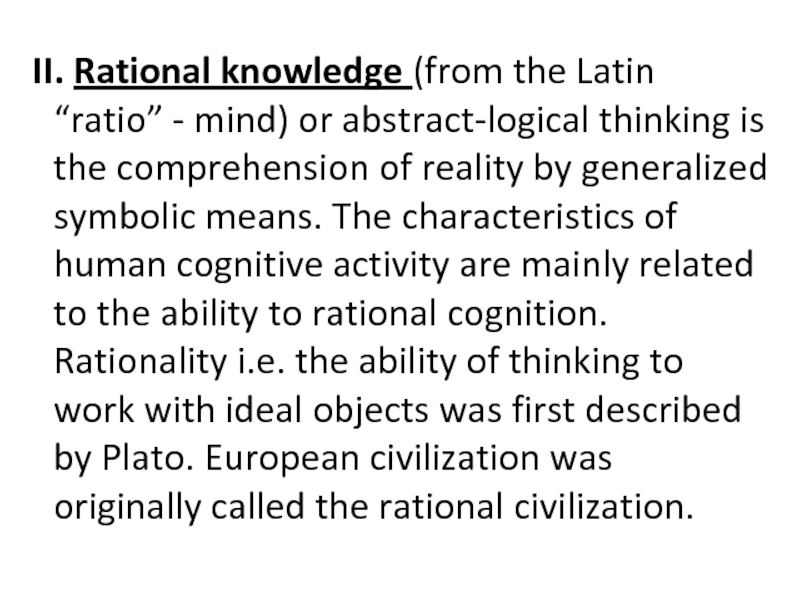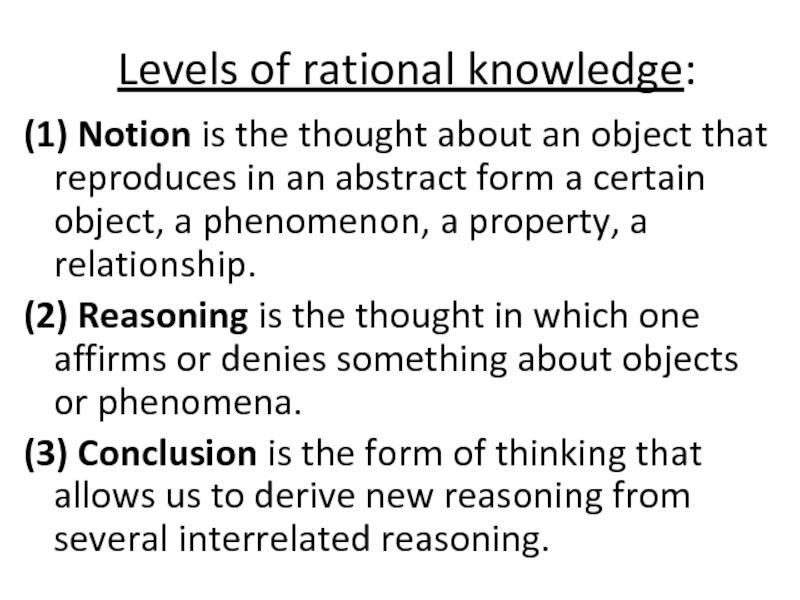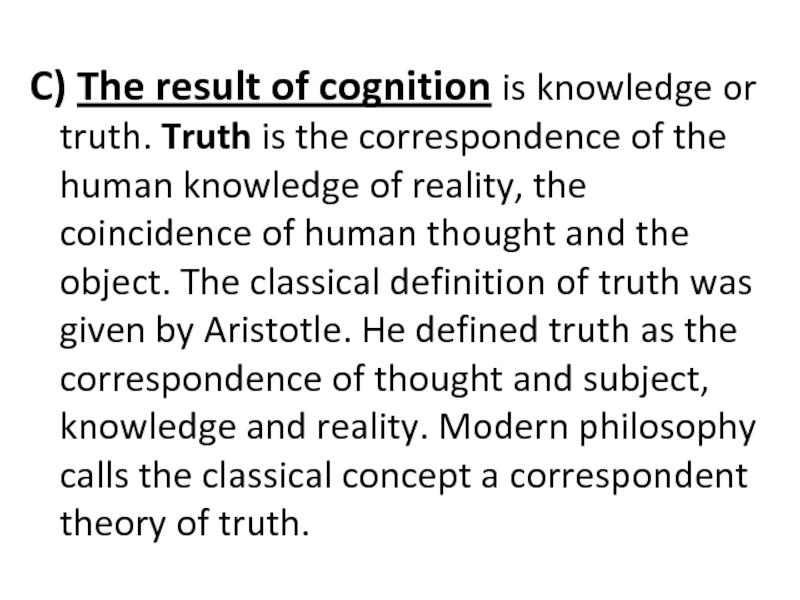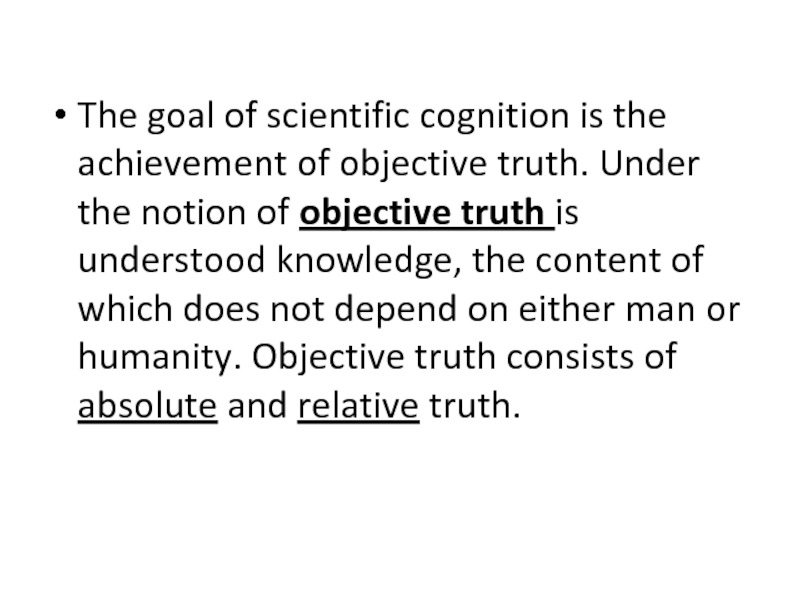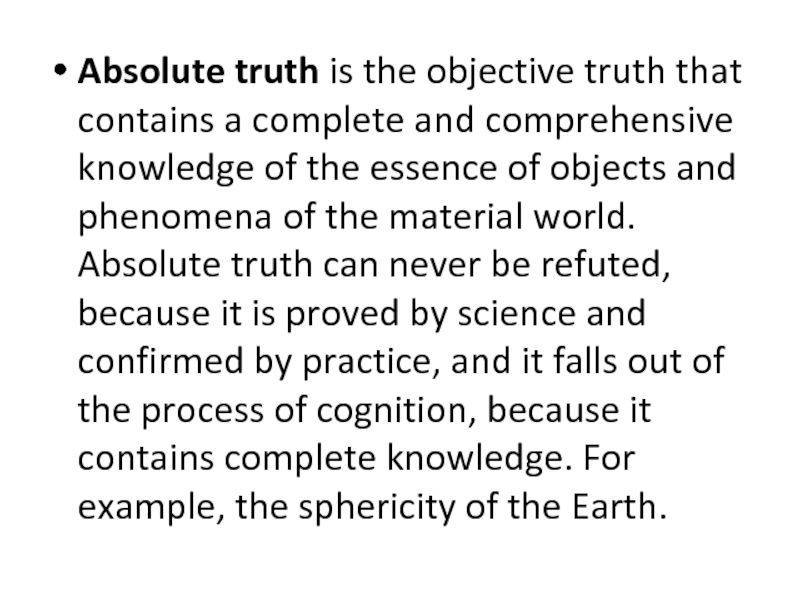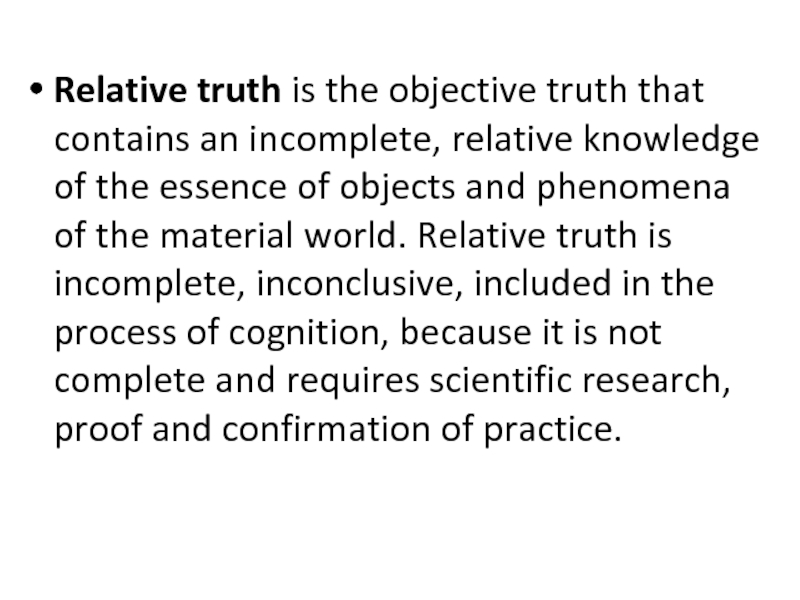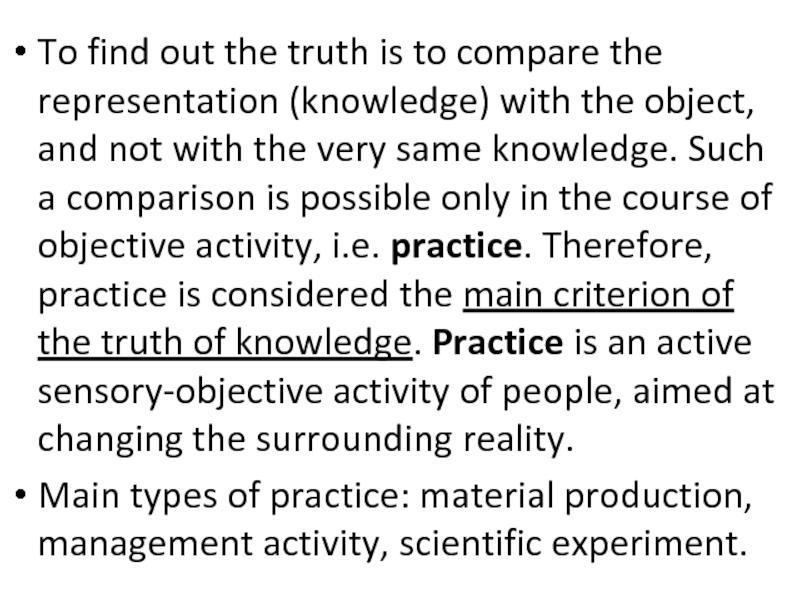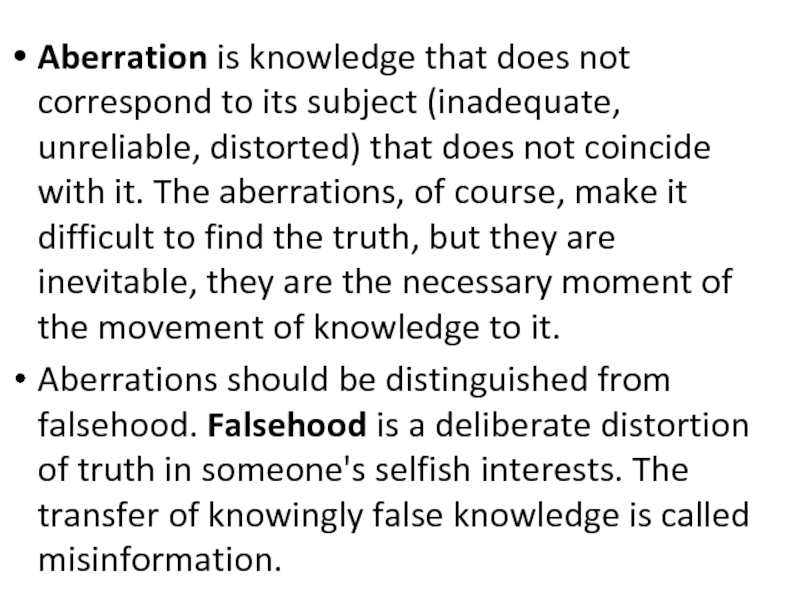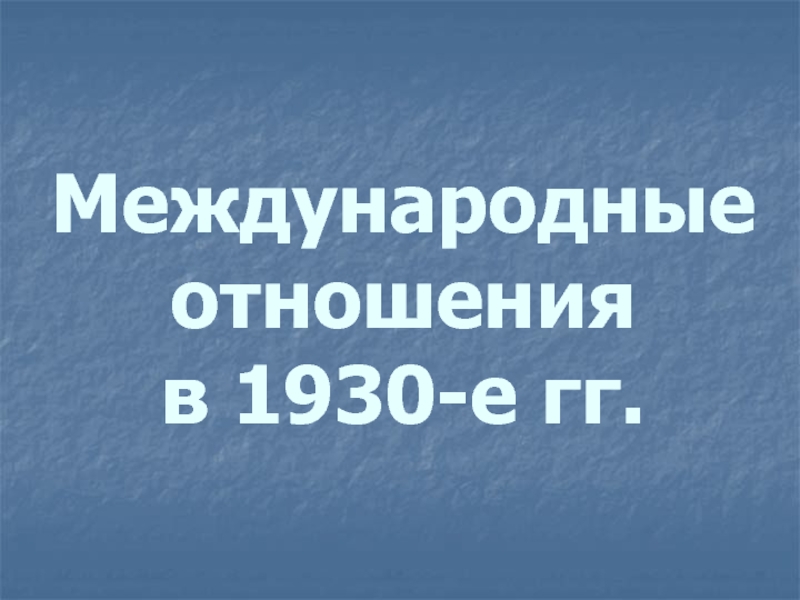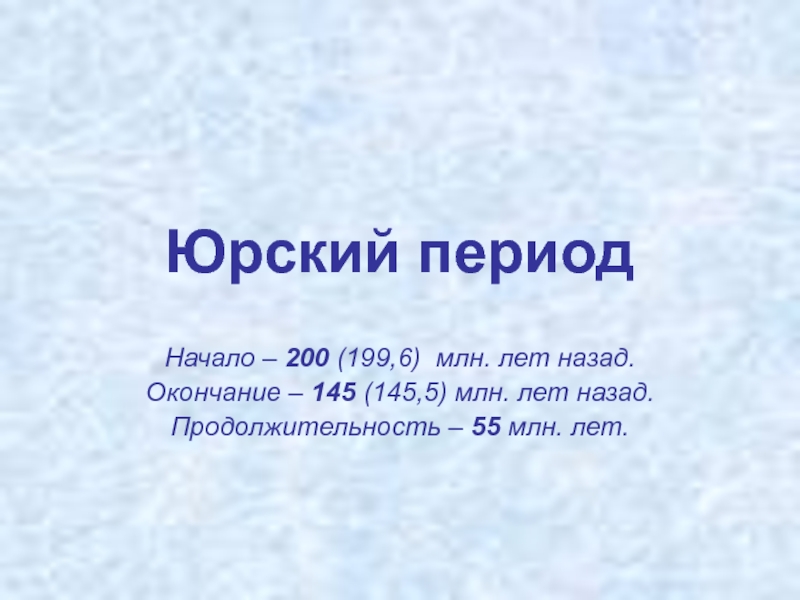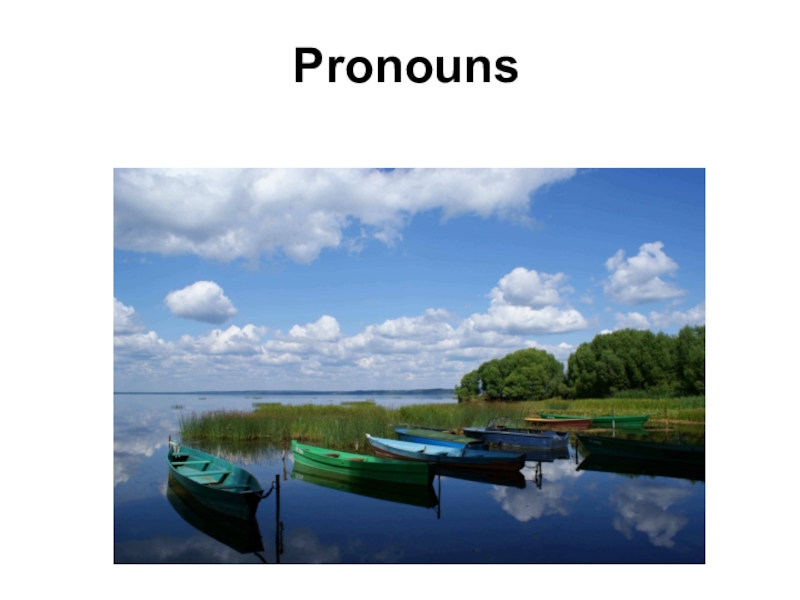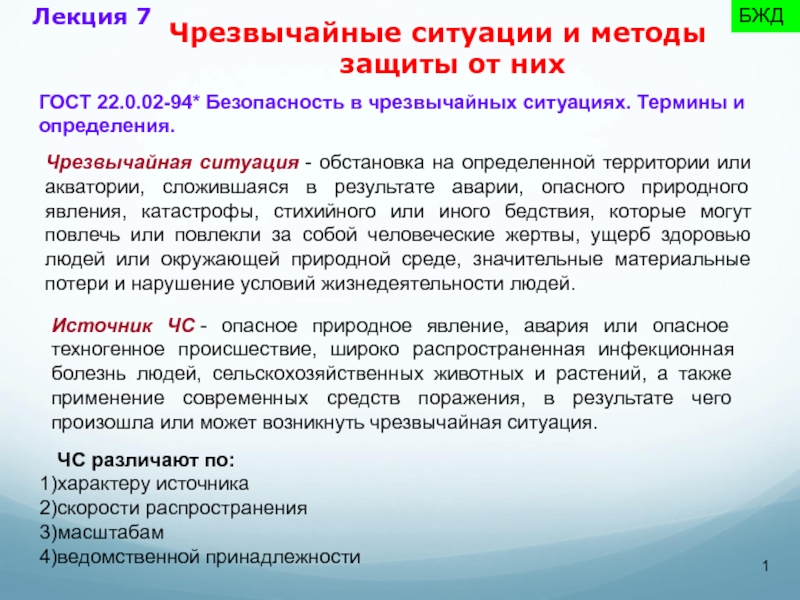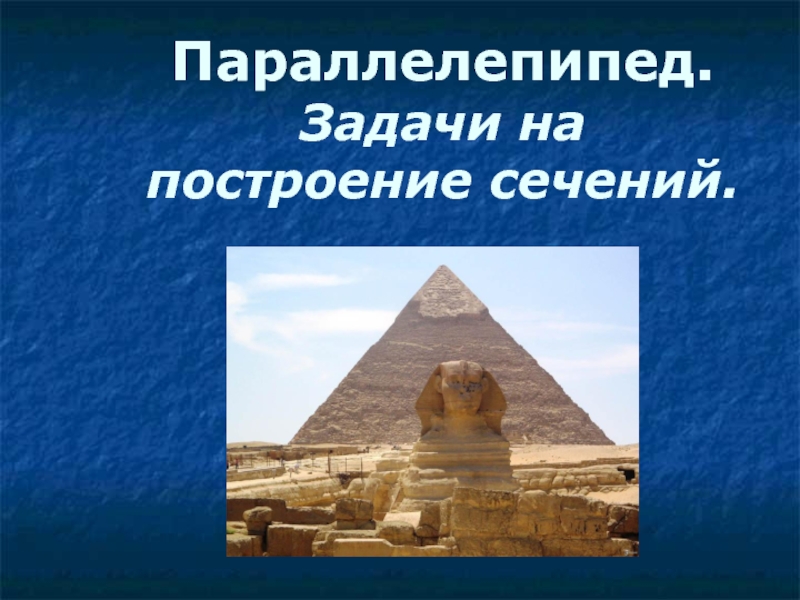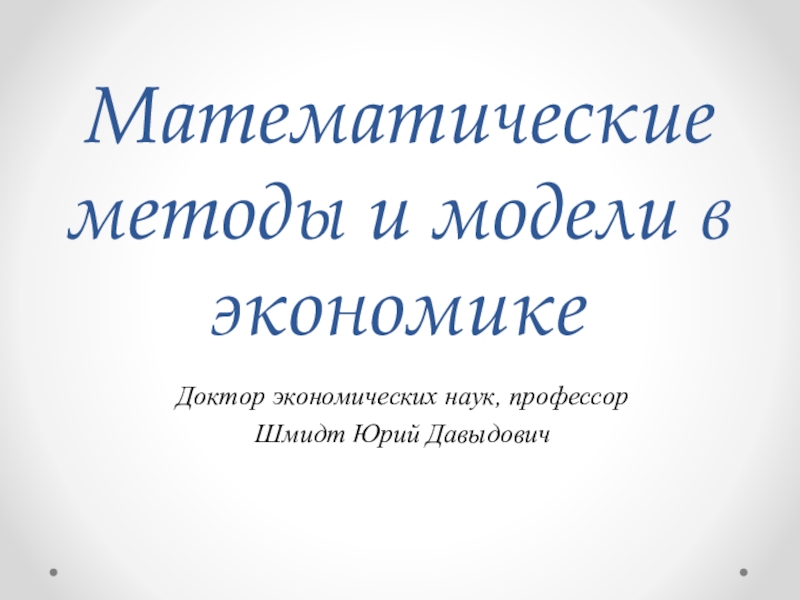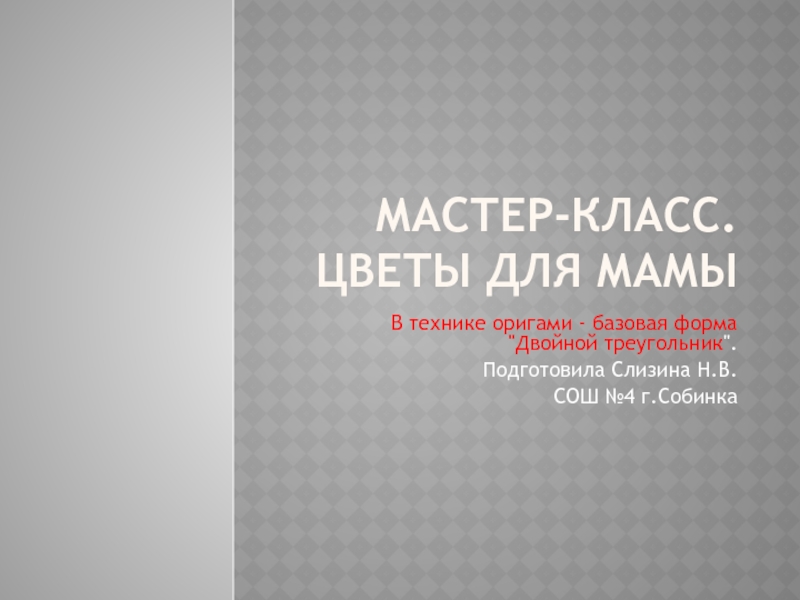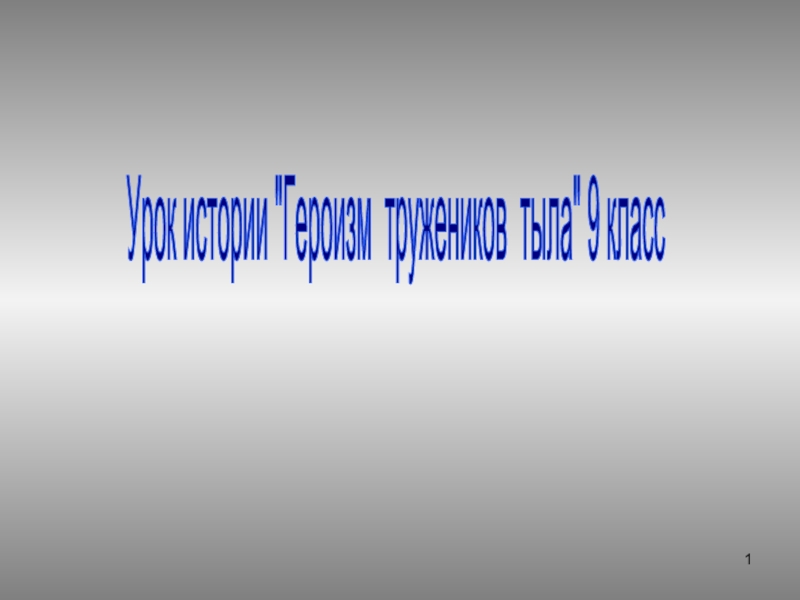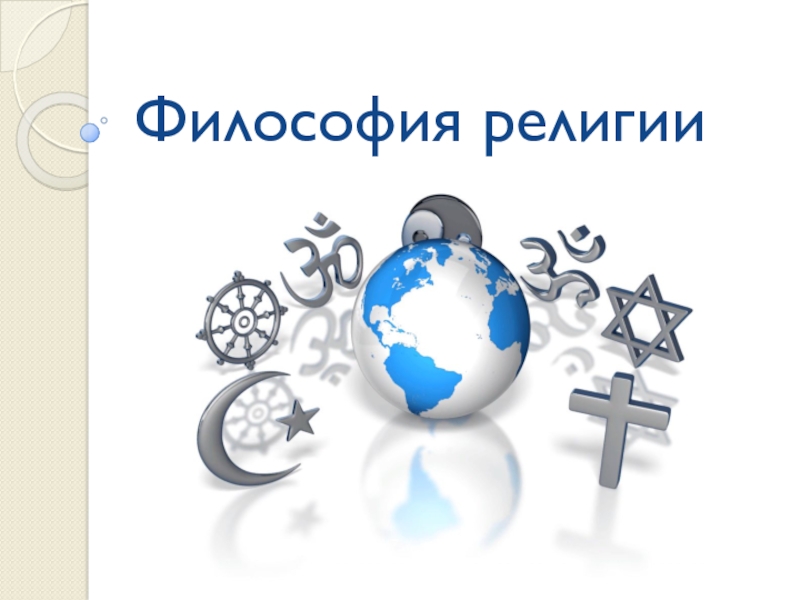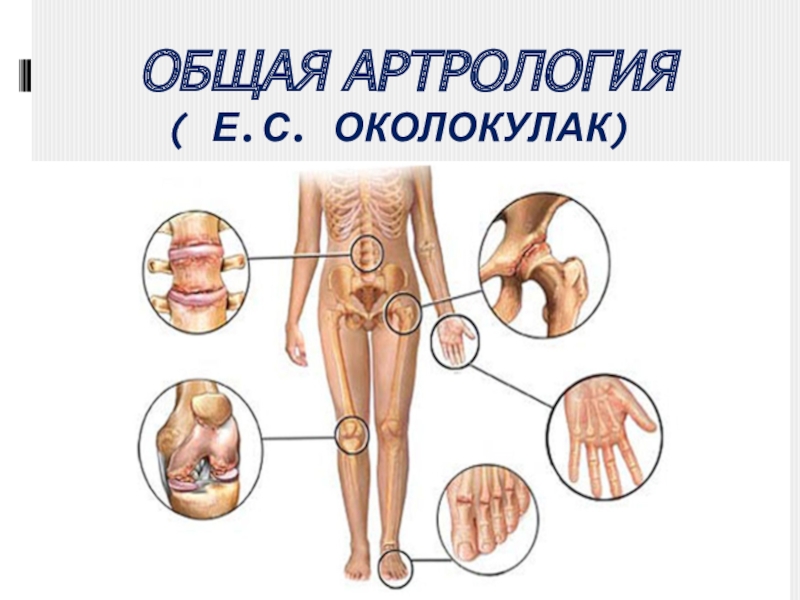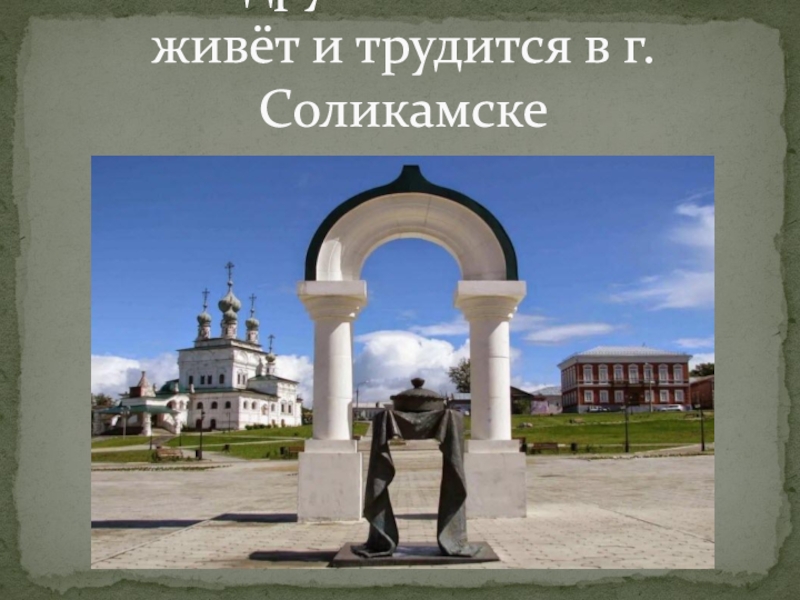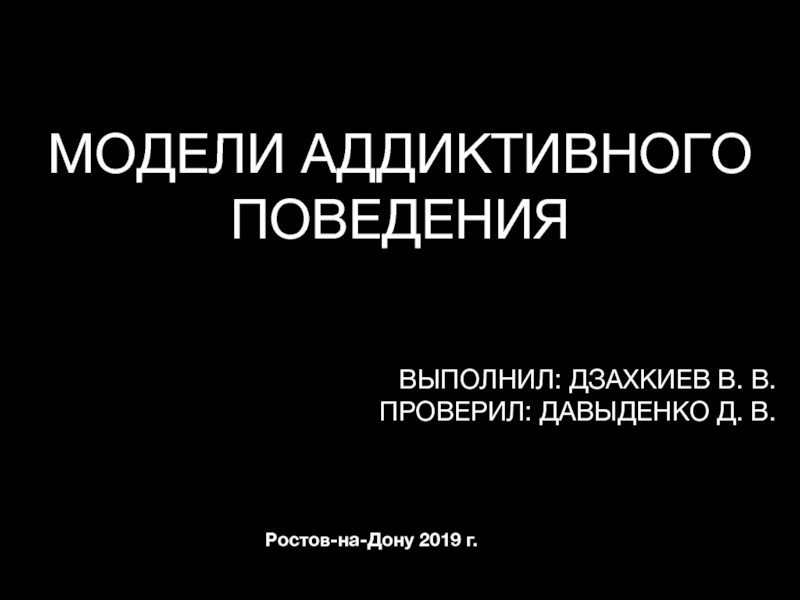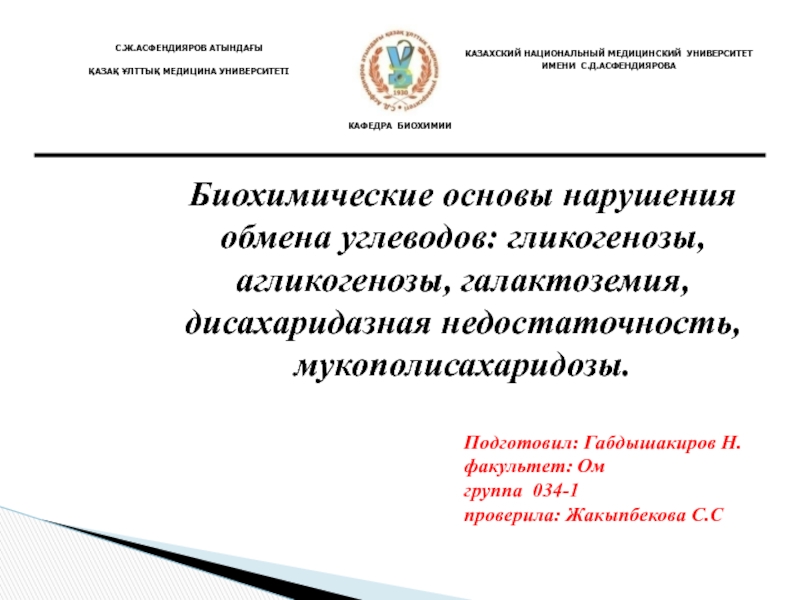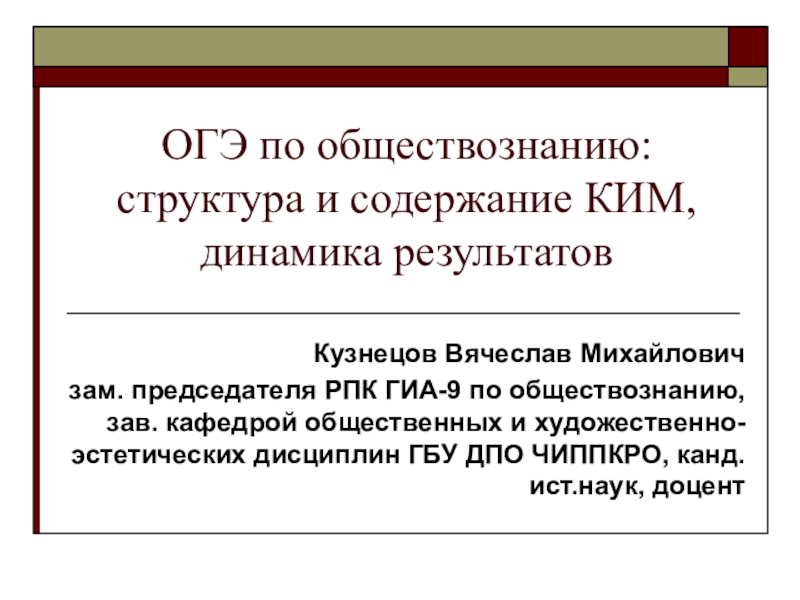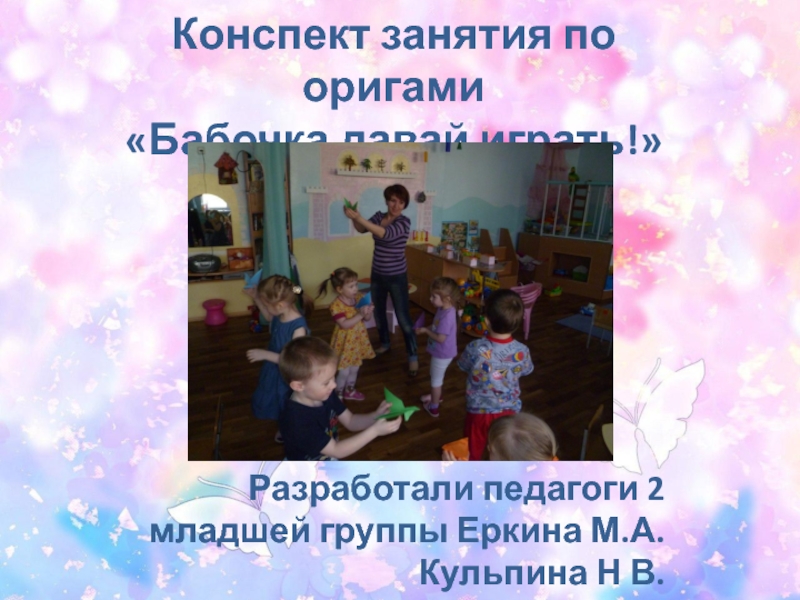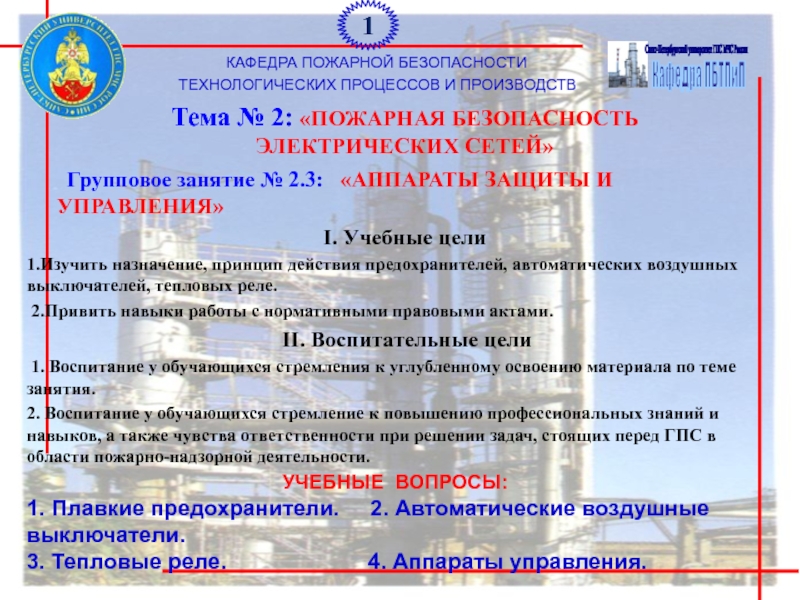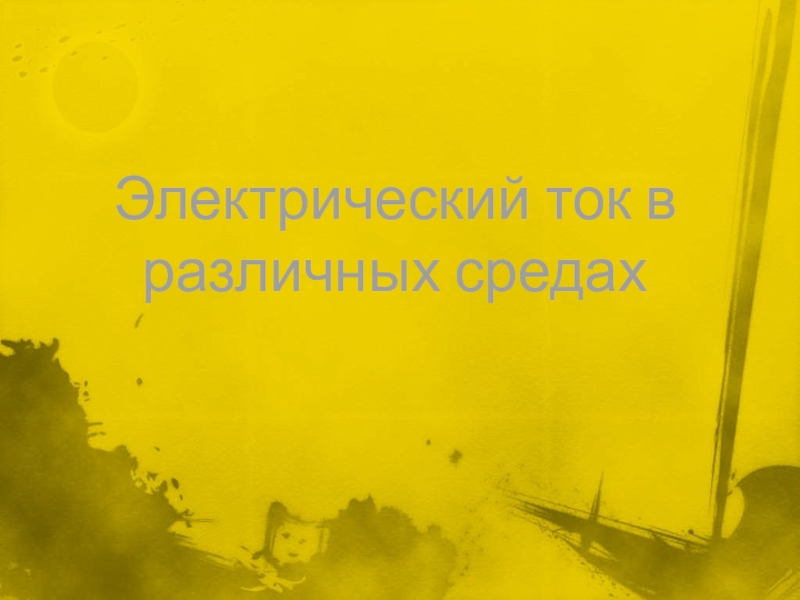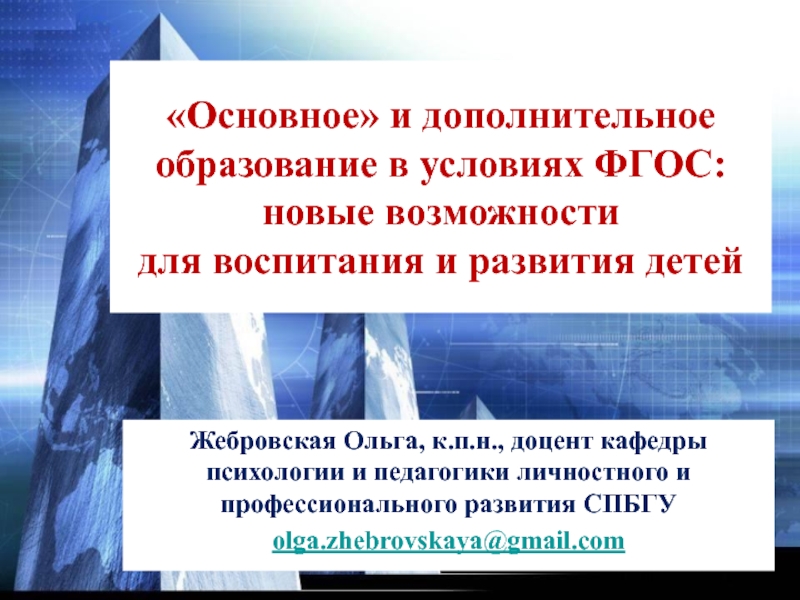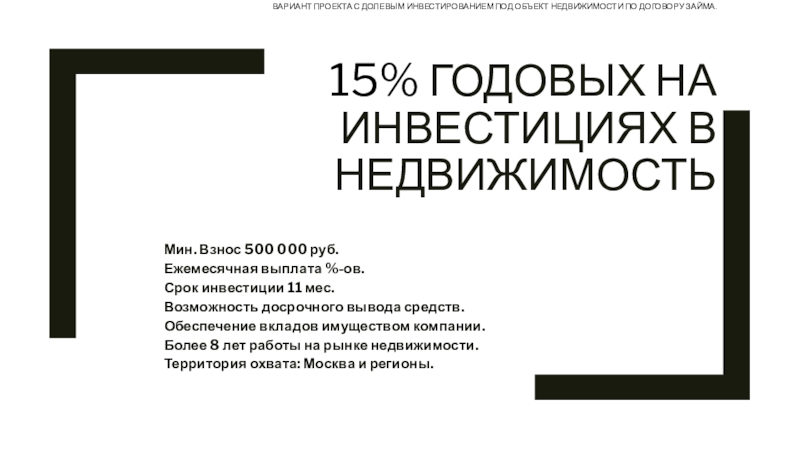Разделы презентаций
- Разное
- Английский язык
- Астрономия
- Алгебра
- Биология
- География
- Геометрия
- Детские презентации
- Информатика
- История
- Литература
- Математика
- Медицина
- Менеджмент
- Музыка
- МХК
- Немецкий язык
- ОБЖ
- Обществознание
- Окружающий мир
- Педагогика
- Русский язык
- Технология
- Физика
- Философия
- Химия
- Шаблоны, картинки для презентаций
- Экология
- Экономика
- Юриспруденция
Lecture 4. Epistemology - the doctrine of cognition
Содержание
- 1. Lecture 4. Epistemology - the doctrine of cognition
- 2. The main issues of the lecture:1. The
- 3. 1. The general concept of cognition and
- 4. What is cognition? Cognition is the spiritual
- 5. A) proponents of Gnosticism believe that the
- 6. 2. The structure of cognition: In cognition,
- 7. A). Subject, object of cognition and the
- 8. The object of knowledge is that part
- 9. B). Ways and means of cognition, or
- 10. 1. Everyday cognition is everyday knowledge, which
- 11. 3. Religious cognition is a way of
- 12. 4. Artistic cognition is the cognition of
- 13. 5. Philosophical cognition forms a general idea
- 14. 6. Scientific cognition - this cognition, aimed
- 15. C). Types and levels of cognition.
- 16. (1) Sensation is the initial form of
- 17. (2) Perception is the complex of several
- 18. II. Rational knowledge (from the Latin
- 19. Levels of rational knowledge: (1) Notion is
- 20. C) The result of cognition is knowledge
- 21. The goal of scientific cognition is the
- 22. Absolute truth is the objective truth that
- 23. Relative truth is the objective truth that
- 24. To find out the truth is to
- 25. Aberration is knowledge that does not correspond
- 26. Thank you for attention!
- 27. Скачать презентанцию
The main issues of the lecture:1. The general concept of cognition and epistemology.2. The structure of cognition.
Слайды и текст этой презентации
Слайд 31. The general concept of cognition and epistemology.
Epistemology or gnoseology
(from Latin “gnosis” - knowledge, “logos” - teaching) is a
branch of philosophy in which the problems of the cognizability of the world, the boundaries of human cognition, ways of obtaining knowledge and criteria for its reliability are studied.In the course of cognition, various facets of being, the external and the essence of things, the phenomena of the surrounding world are explored and revealed, and also the subject of cognition - a human being - are explored, i.e. (which is to say), а man cognizes himself.
Слайд 4What is cognition? Cognition is the spiritual activity of people,
aimed at producing new knowledge based on the achievements of
past generations.In the course of history, two philosophical approaches to the problem of reliable knowledge of existence have developed: gnosticism and agnosticism.
Слайд 5A) proponents of Gnosticism believe that the world is known
in a credible way, and a person has potentially unlimited
possibilities of cognition.B) proponents of agnosticism consider it impossible to fully and reliably cognize the essence of being, the laws of nature and society.
Modern scientific cognition adheres to the position of Gnosticism.
Слайд 62. The structure of cognition:
In cognition, the following elements
are distinguished:
A) Subject, object of cognition and the subject matter.
B)
Ways and means of cognitionC) Types (forms) and levels of cognition
D) The result of cognition or knowledge (truth).
Слайд 7A). Subject, object of cognition and the subject matter.
The subject
of cognition is a human being from whom cognitive interest
comes and which carries out cognitive activity.The subject of cognition possesses 1) reason and 2) an arsenal of cognitive means accumulated by mankind. The cognizant subject is also humanity as a whole or a collective.
Слайд 8The object of knowledge is that part of the surrounding
world, to which the cognitive interest of the subject is
directed. Fourth areas of cognition attract the attention of man: the world of nature, the world of society, the inner world of man and idea of God.The subject matter is part of the object to which the "point" of cognition is directly directed.
Слайд 9B). Ways and means of cognition, or by what means
does man know the world? The methods of cognition are
determined by the characteristics of the cognizing subject, the available knowledge and historically formed cognitive traditions. In the course of human development, the following ways of comprehending being (reality) have developed:Слайд 101. Everyday cognition is everyday knowledge, which consists of the
collective and individual experience of the practical and practical mastery
of the world.2. Mythological cognition is the cognition and explanation of natural phenomena and human existence through myth-making (through symbols, images and beliefs).
Слайд 113. Religious cognition is a way of cognizing being through
a religious worldview and religious doctrines. In religious cognition, special
methods of cognition of the world and man have developed: revelation and meditation.Слайд 124. Artistic cognition is the cognition of being through artistic
creativity and the language of art. A feature of artistic
cognition is the unity of cognition and self- cognition, the object and subject of cognition merge. Means of artistic cognition are: in literature - the word, in painting - color, in music - sound, in sculpture - three-dimensional forms.Слайд 135. Philosophical cognition forms a general idea of the world
as a whole on the basis of operating with abstract
concepts of the ultimate (higher) order. Philosophy also defines the system of principles, views, values and ideals of a person, his attitude to the world and to himself. Means of philosophical cognition: reflexion, dialectics, metaphysics.Слайд 146. Scientific cognition - this cognition, aimed at the formation
of objective reliable knowledge of the surrounding reality. The most
important means of scientific knowledge is the language of science (thesaurus).Слайд 15C). Types and levels of cognition.
In terms of
cognition, sensual and rational cognition are distinguished.
I. Sensual
cognition or sensualism (from Latin sense - feeling, sensation, perception) is the direct acquisition of information through the sense organs and the activity of the nervous system, the preservation and processing of knowledge in reality in the form of visual images. The main levels of sensory cognition are sensations, perception, representation.Слайд 16(1) Sensation is the initial form of cognition, which carries
out a direct connection with the world, the transformation of
the physiological process into the psychic process, into the fact of consciousness and the origin of the ideal image of the reflected object. Sensations (touch, smell, sight, hearing, taste) reflect only the individual sides of the object and do not give a complete view of it.Слайд 17(2) Perception is the complex of several sensations; the process
of constructing holistic images of objects and their interrelations, acting
at the given moment on the sense organs.(3) Representation is the reproduction by means of memory and imagination of the perceptions already existing in the past personal and social experience. Representation serves as a link between sensory and rational cognition.
Слайд 18 II. Rational knowledge (from the Latin “ratio” - mind)
or abstract-logical thinking is the comprehension of reality by generalized
symbolic means. The characteristics of human cognitive activity are mainly related to the ability to rational cognition. Rationality i.e. the ability of thinking to work with ideal objects was first described by Plato. European civilization was originally called the rational civilization.Слайд 19Levels of rational knowledge:
(1) Notion is the thought about
an object that reproduces in an abstract form a certain
object, a phenomenon, a property, a relationship.(2) Reasoning is the thought in which one affirms or denies something about objects or phenomena.
(3) Conclusion is the form of thinking that allows us to derive new reasoning from several interrelated reasoning.
Слайд 20C) The result of cognition is knowledge or truth. Truth
is the correspondence of the human knowledge of reality, the
coincidence of human thought and the object. The classical definition of truth was given by Aristotle. He defined truth as the correspondence of thought and subject, knowledge and reality. Modern philosophy calls the classical concept a correspondent theory of truth.Слайд 21The goal of scientific cognition is the achievement of objective
truth. Under the notion of objective truth is understood knowledge,
the content of which does not depend on either man or humanity. Objective truth consists of absolute and relative truth.Слайд 22Absolute truth is the objective truth that contains a complete
and comprehensive knowledge of the essence of objects and phenomena
of the material world. Absolute truth can never be refuted, because it is proved by science and confirmed by practice, and it falls out of the process of cognition, because it contains complete knowledge. For example, the sphericity of the Earth.Слайд 23Relative truth is the objective truth that contains an incomplete,
relative knowledge of the essence of objects and phenomena of
the material world. Relative truth is incomplete, inconclusive, included in the process of cognition, because it is not complete and requires scientific research, proof and confirmation of practice.Слайд 24To find out the truth is to compare the representation
(knowledge) with the object, and not with the very same
knowledge. Such a comparison is possible only in the course of objective activity, i.e. practice. Therefore, practice is considered the main criterion of the truth of knowledge. Practice is an active sensory-objective activity of people, aimed at changing the surrounding reality.Main types of practice: material production, management activity, scientific experiment.
Слайд 25Aberration is knowledge that does not correspond to its subject
(inadequate, unreliable, distorted) that does not coincide with it. The
aberrations, of course, make it difficult to find the truth, but they are inevitable, they are the necessary moment of the movement of knowledge to it.Aberrations should be distinguished from falsehood. Falsehood is a deliberate distortion of truth in someone's selfish interests. The transfer of knowingly false knowledge is called misinformation.
